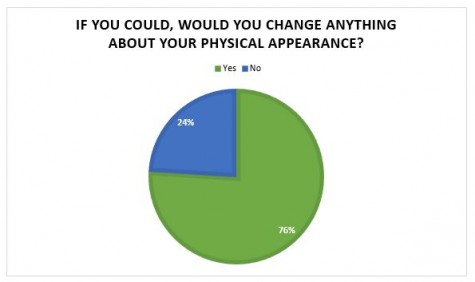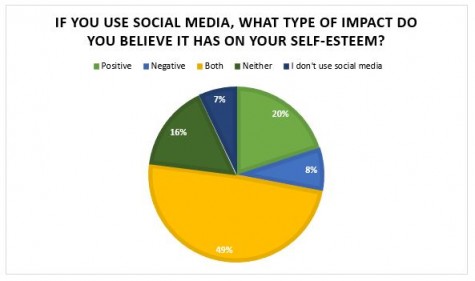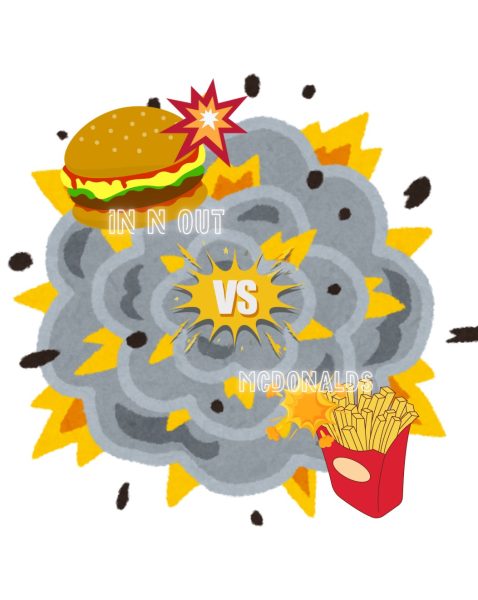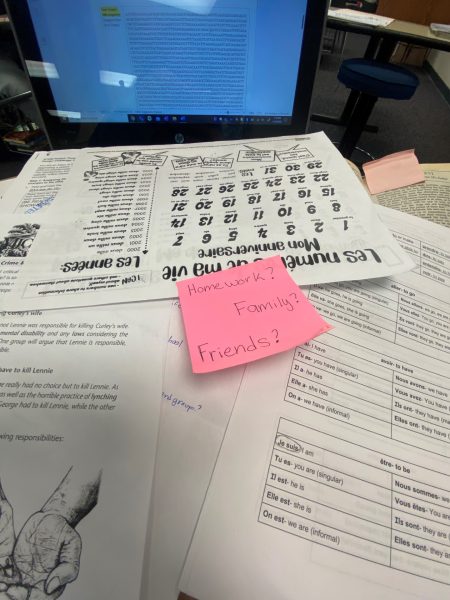Learning to love yourself (in a not-so-loving atmosphere)

We, as humans, are like PlayDoh; a child’s clay that can be morphed, transformed and pressured into any ambitious creation the sculptor wishes. We are pulled apart and pressed together, mixing with foreign colors that set new dreams abroad in the child’s mind. And when the inexperienced artist is finished, we are set out to solidify and harden into the juvenile perception of flawlessness.
We see it in the media, on the street and on the television. We can hear it whispered in our ears and gnawing at the back of our own minds. It’s an issue and battle that everyone faces: acceptance of one’s own, natural self. The world exploits beautiful men and women with unblemished skin, toned muscles and pearly smiles to promote what makes them so beautiful, even if what is used to create such a perfect image is unobtainable. Because our daily lives are bombarded with these tensions to appear flawless in order to look acceptable to others, it makes it that much more difficult for us to accept ourselves for the way that we are. “The first part of love is loving yourself,” said Mr. Jeremy Fallquist, AP Psychology teacher at West High.

On November 13, 2015, a poll was conducted to see how a group of 293 West High students felt about themselves. In Figure 1, the chart shows the statistics of the poll. 76% of the participants would change something physical about themselves, the responses ranging from 1 to 5 or more things that they would like to change. When asked about the effect social media has had on their self-esteem, 49% believed it had an equally positive and negative effect.
“We see these extremes in the media, and these images translate into real-life requests by young [people] aspiring to their cosmetic ideal,” said Jessica Weiser, M.D., a dermatologist with New York Dermatology Group. The value that you possess cannot be diminished by unreasonable standards set by media, peers and even yourself. No matter what physical changes alter your outer appearance, acceptance and contentment only come with the realization that beauty exists in all forms. And because we love ourselves for the way that we are, we can do what’s healthiest and most beneficial for our bodies. “No matter what you look like, no matter how smart you are, you have to love yourself… accept the way you are and better yourself in terms of working out and building good relationships,” said Fallquist, “Then, when you have confidence in yourself—when you love yourself—you’re going to love other people and be a happier person.”





